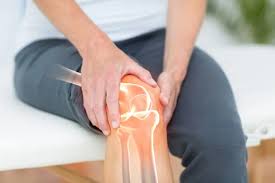Hemp Seed Oil Studies
Go to comments (6)Acyclic Diterpene Phytol from Hemp Seed Oil (Cannabis sativa L.) Exerts Anti-Inflammatory Activity on Primary Human Monocytes-Macrophages
Carmen M. Claro-Cala, Elena Grao-Cruces, Rocio Toscano, Maria C. Millan-Linares, Sergio Montserrat-de la Paz and Maria E. Martin
https://www.mdpi.com/2304-8158/11/15/2366
This study explores how a substance called phytol, found in hemp seed oil, can help reduce inflammation in our body's defense cells, specifically monocytes and macrophages. These cells play a role in our immune system. The researchers discovered that phytol encourages these cells to adopt a more anti-inflammatory state, which is beneficial for our health. Additionally, phytol reduces the production of certain inflammation-inducing molecules. This suggests that hemp seed oil, rich in phytol, might have a positive impact on our body's ability to manage inflammation, providing a potential health benefit.
Beneficial Outcomes of Omega-6 and Omega-3 Polyunsaturated Fatty Acids on Human Health: An Update for 2021
Ivana Djuricic & Philip C. Calder
https://www.mdpi.com/2072-6643/13/7/2421
This study emphasises that oxidative stress and inflammation contribute significantly to the risk of chronic diseases. Polyunsaturated fatty acids (PUFAs), specifically omega-3 and omega-6, play a crucial role in regulating antioxidant signalling pathways and modulating inflammatory processes. Longitudinal studies indicate that moderate intake of omega-6 PUFA linoleic acid (found in our hemp seed oil) is associated with a lower risk of cardiovascular diseases (CVDs), likely due to reduced blood cholesterol concentration. Evidence suggests that increasing intake of arachidonic acid, an omega-6 PUFA, has no adverse effects on certain factors but may benefit muscle and cognitive performance.
Gamma-linolenic acid treatment of rheumatoid arthritis. A randomized, placebo-controlled trial
https://doi.org/10.1002/art.1780391106
This study aimed to evaluate the effectiveness and side effects of γ-linolenic acid (GLA), an unsaturated fatty acid derived from hemp seed oil known to reduce inflammation and joint tissue damage in animal models, for treating active rheumatoid arthritis (RA).
In a 6-month double-blind trial, 56 patients with active RA were randomly assigned to receive either 2.8 gm/day of GLA or a placebo. Subsequently, a 6-month single-blind trial followed, where all patients received GLA. The results showed that GLA treatment for 6 months led to statistically significant and clinically relevant reductions in the signs and symptoms of RA. Meaningful responses (at least 25% improvement in 4 measures) were more prevalent in the GLA group compared to the placebo group. Both groups showed improvement in the second 6 months, but patients consistently taking GLA throughout the study exhibited progressive improvement. Overall, GLA at the doses used in the study was found to be a well-tolerated and effective treatment for active RA, suggesting its potential in managing joint pain associated with this condition. It's worth noting that GLA is available in several plant seed oils and is typically taken in lower doses than those used in the trial
Clinical Benefits of n-3 PUFA and ɤ-Linolenic Acid in Patients with Rheumatoid Arthritisby Mirjana Veselinovic, Dragan Vasiljevic, Vesna Vucic, Aleksandra Arsic, Snjezana Petrovic, Aleksandra Tomic-Lucic, Maja Savic, Sandra Zivanovic, Vladislava Stojic and Vladimir Jakovljevic
This study investigated the effects of marine n-3 polyunsaturated fatty acids (PUFA) and ɤ-linolenic acid (GLA) in patients with rheumatoid arthritis (RA), focusing on their anti-inflammatory properties. Sixty patients with active RA were part of a 12-week randomized trial, receiving fish oil (group I), fish oil with primrose evening oil (group II), or no supplementation (group III). Clinical and laboratory evaluations were conducted at the study's beginning and end.
Results showed notable reductions in the Disease Activity Score 28 (DAS 28 score), number of tender joints, and visual analogue scale (VAS) score after supplementation in groups I and II, indicating significant clinical benefits. The n-6/n-3 fatty acids ratio in plasma phospholipids decreased in groups I and II. Combining n-3 PUFA and GLA (group II) increased ɤ-linolenic acid, previously undetectable. The study concluded that daily supplementation with n-3 fatty acids alone or in combination with GLA yielded significant clinical benefits and caused specific changes in disease activity. The anti-inflammatory effects of marine n-3 PUFAs and GLA were observed, suggesting their potential in managing joint pain associated with RA.


Joint support research
Comments (6)
I think my husband has gout although drs not sure. Has had gout meds antibiotics and prednisone to little effect. Would your product help.
Would this help with sisacta in hip going down the leg
Hi, would this product be suitable as a supplement for my old dog who has joint issues.
I have osteoarthritis in my knee. Will this help relieve pain and inflammation?
Hi
My husband is wondering whether you have hemp ointment he could rub onto his sore joints. He has tried your oil and it works to a point.
Hello, I have a 14 yr back injury, several back surgeries, and 10 months ago a knee replacement, which went well, then I tore 2 tendons and a calf muscle in physio. I have been living on pain meds for 14 years and still have alot of back and joint pain. I would be interested to know what the best product/s for me would be to try. Regards Lynn